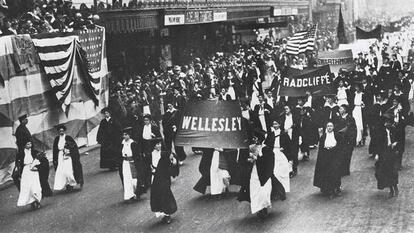Time Magazine Partners With Wellesley’s Oscar Fernandez on New Interactive Tool to Resolve Financial Disputes

Money is said to be one of the biggest sources of marital conflict – and one of the toughest issues to resolve. “A 2014 MONEY poll found that finances are the biggest subject of romantic fights,” writes Time magazine. So the magazine, in partnership with Wellesley College’s Oscar Fernandez, associate professor of mathematics, has created an interactive tool to resolve any financial dispute between two people – whether they are romantically involved or not. The tool is based on information in a book by Fernandez, The Calculus of Happiness, which portrays ways in which mathematics can be used to improve decision-making and general well-being.
The calculator is based on one of the formulas described in Fernandez’ book. It was originally proposed in 1950 by John Nash, the mathematician portrayed in the movie A Beautiful Mind. Time writes, “It offered a basic equation for how two people can divide anything that’s quantifiable – money, space, pizza – to maximum joint benefit.”
Time describes the logic behind Fernandez’ formulas as follows: “Whenever two people are deciding how to divvy up a shared resource, they each just have to rate how happy they would be if they got all of it, on a scale of 1 to 10, as well as how happy they would be if they can't reach an agreement and have to give up without either person getting anything.”
The article explains that the output of Fernandez’ formulas is the amount of money (or pizza, or any other resource being divided) each person gets, together adding up to the total to be divided. Only agreements where each party is happier making a deal than not are considered. Of these possible agreements, the formulas select the one that maximizes the product of the individual gains in happiness.
Time writes that Nash is best known for his advances in “game theory,” a study of how to develop a winning strategy in various areas of life, especially when you’re not privy to what your competitors are doing and the choices don’t always look promising.
Game theory has been used extensively in areas like economics and diplomacy, where the risks can be high and a little math can assist in good decision-making. Fernandez would like to see greater usage of game theory – and mathematics in general – in other aspects of life, including relationships, in part because he believes mathematics can empower us to improve our lives. As Fernandez told Time, "It's almost like the math is trying to tell you something.” And we have mathematicians like Fernandez to thank for helping us learn to speak that “foreign language.”



